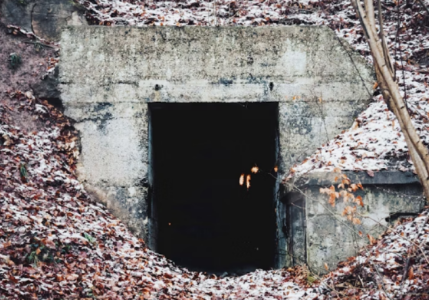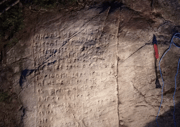Taking stock: Doomsday prepper reveals $430K bunker and how you can start your own emergency stash
- Replies 0
Could you survive 72 hours without outside help? That’s the question Rowan MacKenzie, a mother and real estate agent, wants you to think about.
After spending $430,000 on a personal doomsday bunker, she’s urging everyday people to take preparedness more seriously.
Her message isn’t panic—it’s practical action in a world that feels increasingly unstable.
Rowan’s focus isn’t on nuclear fallout or Hollywood-style disasters.
She’s concerned with what experts call “gray-zone threats”—events like cyberattacks, supply chain chaos, or financial meltdowns.
These don’t make headlines in the same way as bombs or invasions, but they can shut down systems and affect daily life fast.
“The economic crash can be just as disastrous as an actual physical war,” she says.
Inside her high-cost bunker, every detail is accounted for. Her food supply includes freeze-dried meals and long-shelf-life goods that can sustain her family for months.
There’s medical inventory far beyond a standard first aid kit—think antibiotics, wound care, and essential medications.
And in case of power outages, solar panels, generators, and hand-cranked radios keep her connected and running.
She also stores safety gear like smoke detectors, fire extinguishers, and self-defense tools. But Rowan says you don’t need a fortune to begin prepping.
Her top advice? “stockpile at least 72 hours' worth of essentials,” she urges, emphasizing that short-term readiness can be life-saving.
A basic emergency kit should include one gallon of water per person per day and a supply of non-perishable food.
Add in flashlights, batteries, medications, copies of key documents, and a battery-powered radio. Rowan says—a reminder that prepping should reflect your household's real needs.
The goal is to be ready to respond, not to live in fear.
Beyond supplies, Rowan believes skills and planning are just as important.
“Learn basic first aid and fire safety,” she says, pointing out that knowledge can save lives in both everyday accidents and large-scale emergencies.
Practicing evacuation drills and blackout protocols with your household ensures no one is caught off guard. “Especially if you have little ones,” she adds.
Rowan also recommends getting familiar with your local emergency services and resilience networks. Many towns and cities offer forums or resources to help citizens prepare.
“As defense evolves, so too must public readiness,” she notes. Prepping isn’t just a hobby anymore—it’s smart planning.
While some still associate prepping with fringe behavior, Rowan is part of a growing number of people who see it differently.
With extreme weather events, power grid failures, and geopolitical tensions on the rise, more families are choosing to prepare quietly and confidently.
“Don’t panic; make a list and execute,” she advises. Her mindset is calm, calculated, and grounded in the belief that readiness is responsibility.
Read next: Scientists just predicted when the universe will end—and it’s shockingly sooner than we thought


Are you prepared if things go sideways for a few days—or longer? Building your emergency kit could be the smartest decision you make this year. What’s in your go-bag, and what advice would you offer others just starting out? Share your thoughts in the comments and let’s help each other get better prepared for whatever comes next.
After spending $430,000 on a personal doomsday bunker, she’s urging everyday people to take preparedness more seriously.
Her message isn’t panic—it’s practical action in a world that feels increasingly unstable.
Rowan’s focus isn’t on nuclear fallout or Hollywood-style disasters.
She’s concerned with what experts call “gray-zone threats”—events like cyberattacks, supply chain chaos, or financial meltdowns.
These don’t make headlines in the same way as bombs or invasions, but they can shut down systems and affect daily life fast.
“The economic crash can be just as disastrous as an actual physical war,” she says.
Inside her high-cost bunker, every detail is accounted for. Her food supply includes freeze-dried meals and long-shelf-life goods that can sustain her family for months.
There’s medical inventory far beyond a standard first aid kit—think antibiotics, wound care, and essential medications.
And in case of power outages, solar panels, generators, and hand-cranked radios keep her connected and running.
She also stores safety gear like smoke detectors, fire extinguishers, and self-defense tools. But Rowan says you don’t need a fortune to begin prepping.
Her top advice? “stockpile at least 72 hours' worth of essentials,” she urges, emphasizing that short-term readiness can be life-saving.
A basic emergency kit should include one gallon of water per person per day and a supply of non-perishable food.
Add in flashlights, batteries, medications, copies of key documents, and a battery-powered radio. Rowan says—a reminder that prepping should reflect your household's real needs.
The goal is to be ready to respond, not to live in fear.
Beyond supplies, Rowan believes skills and planning are just as important.
“Learn basic first aid and fire safety,” she says, pointing out that knowledge can save lives in both everyday accidents and large-scale emergencies.
Practicing evacuation drills and blackout protocols with your household ensures no one is caught off guard. “Especially if you have little ones,” she adds.
Rowan also recommends getting familiar with your local emergency services and resilience networks. Many towns and cities offer forums or resources to help citizens prepare.
“As defense evolves, so too must public readiness,” she notes. Prepping isn’t just a hobby anymore—it’s smart planning.
While some still associate prepping with fringe behavior, Rowan is part of a growing number of people who see it differently.
With extreme weather events, power grid failures, and geopolitical tensions on the rise, more families are choosing to prepare quietly and confidently.
“Don’t panic; make a list and execute,” she advises. Her mindset is calm, calculated, and grounded in the belief that readiness is responsibility.
Read next: Scientists just predicted when the universe will end—and it’s shockingly sooner than we thought
Key Takeaways
Key Takeaways
- Rowan MacKenzie has built a $430,000 bunker to protect her family from gray-zone threats like cyberattacks and economic collapse.
- She recommends every household stock at least 72 hours' worth of essentials: water, food, medication, power sources, and communication tools.
- Prepping also means learning skills like first aid, planning evacuation routines, and connecting with local resilience groups.
- Her advice: Don't panic—plan ahead, take small steps, and protect the people you love.
Are you prepared if things go sideways for a few days—or longer? Building your emergency kit could be the smartest decision you make this year. What’s in your go-bag, and what advice would you offer others just starting out? Share your thoughts in the comments and let’s help each other get better prepared for whatever comes next.







